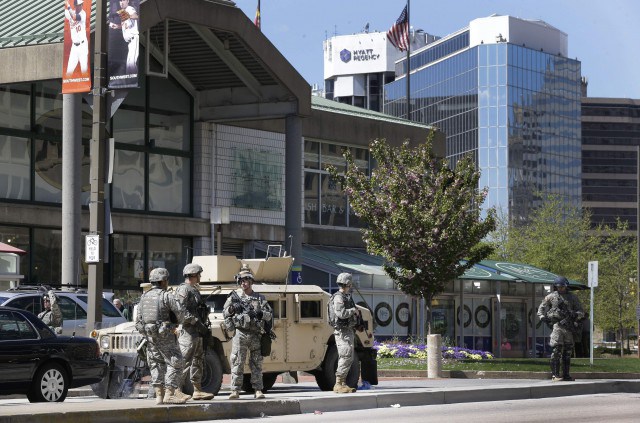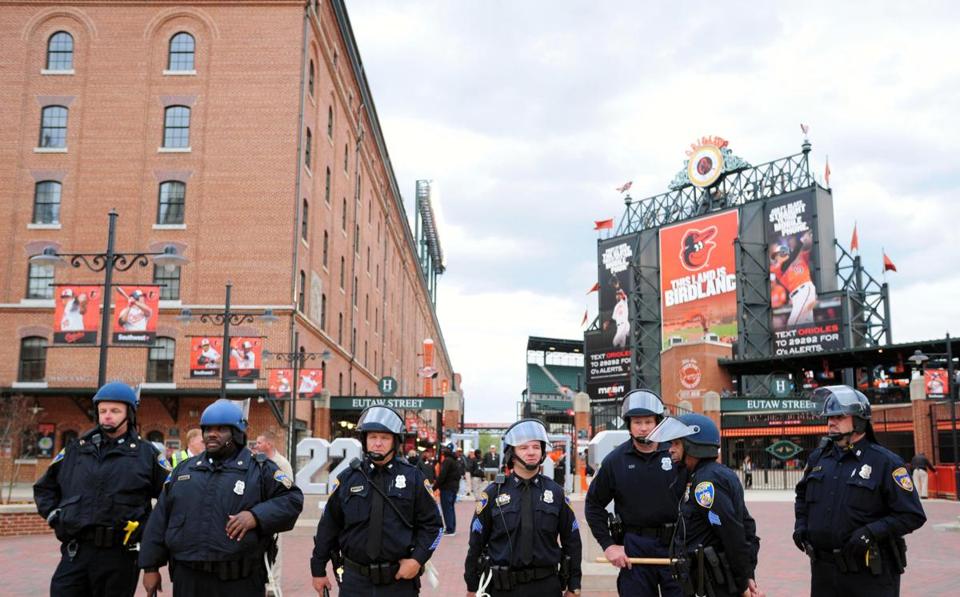Baltimore’s businesses fear investment, tourism will be hit
Daily News Article — Posted on April 30, 2015
(by Megan Davies, Reuters) – A night of arson and looting in Baltimore has shaken the confidence of people running businesses beyond the areas hardest hit. In particular, they are concerned a city that took many years to start to recover from devastating riots in 1968 could be put back on its heels.
While Baltimore’s unemployment rate is higher than the national average and it is lagging in per capita income, the city government’s budget is stable, it has a diverse business sector, elite universities and medical facilities, and a growing number of tourists flock to its downtown harbor.
But the unrest that led to the burning of 19 buildings, the destruction of 144 vehicles, and injuries to 20 police officers on Monday, deeply unsettled the business community and the wider population of the city. It followed the funeral of a 25-year-old black man, Freddie Gray, who died in a hospital on April 19, a week after sustaining injuries in police custody. The situation was calmer on Tuesday, with the National Guard deployed and a curfew in force from 10 p.m. to 5 a.m, but tensions remain very high.
“I woke up this morning feeling really concerned about the future of our industry in Baltimore and whether people will want to move here and live here,” said Will Runnebaum, owner of Baltimore’s Marcus-Boyd Realty.
“In the last couple of days we’ve had to cancel numerous appointments with clients that were interested in seeing properties for sale and for rent,” Runnebaum said.
With the one-week curfew imposed, service-oriented businesses such as restaurants are taking a hit. They started to suffer some days ago as protests grew following Gray’s death.
“We started to feel the impact of the events taking place as early as Saturday, with cancellations of parties that were booked for events,” said Brian McComas, the owner of Ryleigh’s Oyster restaurant which has several Baltimore locations and has temporarily closed one.

Maryland National Guardsmen patrol near downtown businesses in Baltimore, Tuesday, April 28, 2015, a day after looting and arson erupted. (AP Photo/Patrick Semansky)
Baltimore is home to some major American businesses, including fund management firms T Rowe Price and Legg Mason, and athletic wear retailer Under Armour. T. Rowe Price closed its downtown office on Tuesday. Legg Mason opened its offices but encouraged employees to work from home.
The city’s conference industry could also take a hit. The Futures Industry Association said it canceled a compliance conference scheduled for Wednesday, and some other events have been canceled or postponed.
“It’s going to be harder to attract convention and business meetings to Baltimore,” said Anirban Basu, Chairman and CEO of Sage Policy Group, a Baltimore-based economic and policy consulting firm. “The community, region and state will all be negatively impacted. Private investment into Baltimore will slow.”
The looting and burning of a CVS store, which has been shown on just about every newscast in the past 24 hours, as well as the destruction of other shops, will tend to deter retailers from making new investments, economists warned.
“One of the things that’s been growing in the area has been the tourism aspect and nothing puts off tourists more than riots and curfews,” said Daraius Irani, chief economist at the Regional Economic and Studies Institute of Towson University in Baltimore.

Baltimore police officers stand outside Oriole Park at Camden Yards prior to the cancellation of Monday night’s game between the Chicago White Sox and Baltimore Orioles. Tuesday’s game was also postponed.
The closed-door contest followed the postponements of Monday’s and Tuesday’s games against the White Sox following unrest in Baltimore. The team also announced it would move three games (May 1-3) against the Tampa Bay Rays to Florida. The Orioles will still be the home team, the team said.
The game is believed to be the first held in an empty stadium in the 145-year history of the major leagues.
According to MLB .com, games have been postponed in the past because of security concerns. In 1992, four Los Angeles Dodgers games were pushed back because of riots after the acquittals of police officers in the Rodney King case.
In 1967, riots in Detroit prompted baseball officials to move games between the Tigers and the Orioles to Baltimore. Opening Day of 1968 was postponed for two days after the killing of the Rev. Martin Luther King Jr.
After the September 11, 2001, terrorist attacks, all professional baseball was called off for one week.]
Reprinted here for educational purposes only. May not be reproduced on other websites without permission from Thomson Reuters. Visit the website at Reuters .com. [Note: the MLB info is from an Associated Press article.]
